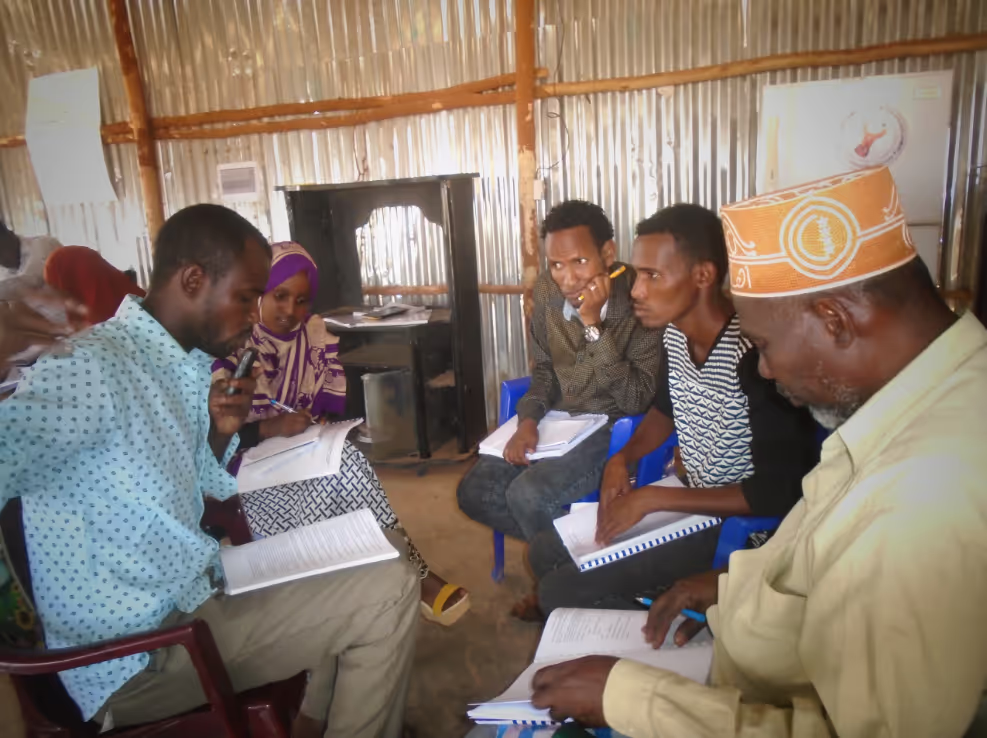Curriculum Adaptation Process and the Development of Logic Models

As has been indicated in the previous reports, the project team has collected sixty hours worth of qualitative data from the field, transcribed the data, and translated all Somali documents to English. Currently the data is being coded and analyzed, and will be used to inform the curricula development process.
Our team of experts conducted a logic model development workshop in New York in March 2017. The technical experts include some who flew from Ethiopia, others from Paris, and who worked together during a two-day workshop to adapt/ develop elements of the theory of change logic model required for the intervention.
Three sets of theory of change logic models are in development to be used by the intervention (one for the men-only group, another for the women-only group and the third one for the couples group). The team exhaustively discussed areas that would only require minor modification from the Butajira curricula, areas that would require significant changes and areas that require new content. From the ongoing qualitative data analysis, we have identified that there are specific adaptations to be made relevant to the refugee setting.
In total, we outlined three health goals including to decrease the prevalence and intimate partner violence (IPV), fifteen sets of behavior outcomes, and more than two hundred knowledge, attitude, belief, skills and peer norms related determinants that are linked to the health goals (see list). The team is working tirelessly to refine this and the next step will be to identify relevant activities that will challenge and question the negative determinants; reinforce the positive ones and build knowledge and skills among intervention participants.
The team has also devised strategies to document the adaptation process in order to generate lessons learned. A total of sixteen sessions per curricula will be finalized using the qualitative data and the intervention will be pre-tested within the Somali refugee community. Lessons gained will then be used to refine the final intervention to be pilot tested in the near future.
By Samuel Tewolde
Intervention Specialist for Emergency Operations
WAHA International-Ethiopia
Stay updated
Sign up for our newsletter to receive regular updates on resources, news, and insights like this. Don’t miss out on important information that can help you stay informed and engaged.
Explore Elrha
Learn more about our mission, the organisations we support, and the resources we provide to drive research and innovation in humanitarian response.


.png)